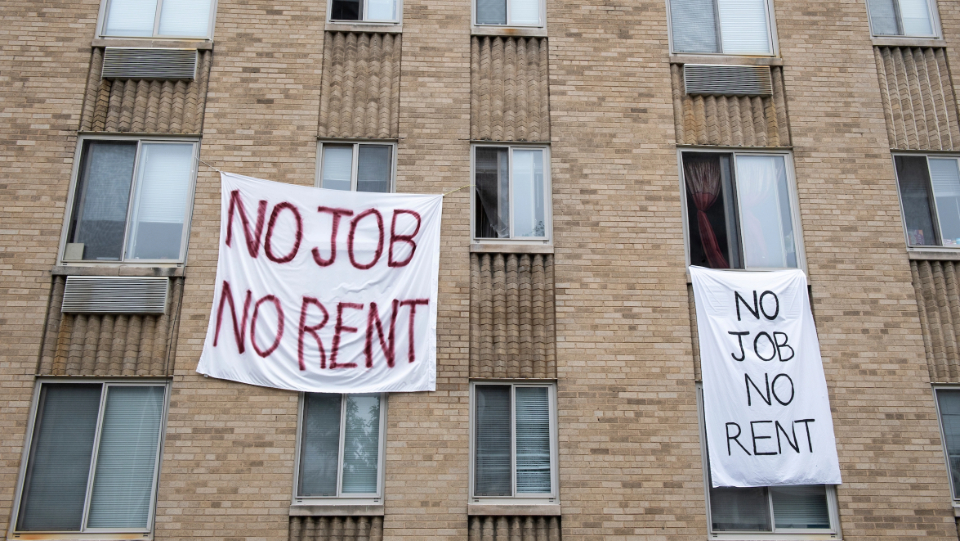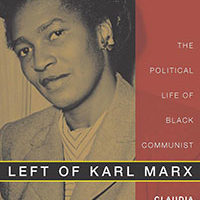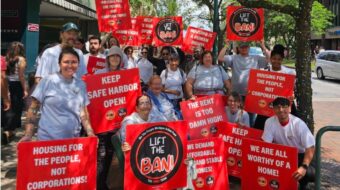
WASHINGTON— If a new proposal is enacted, D.C. could become one of the first major cities in the United States to adopt a municipal strategy aimed at creating a sustainable supply of affordable housing.
In April 2022, Janeese Lewis George, councilmember of Ward 4, introduced two historic legislative bills to the D.C. city council modeled after the Green New Deal in Congress.
The first bill, the “Green New Deal for Housing Act” aims to solve the affordable housing crisis in D.C., which was influenced in part by housing attorney and former at-large candidate, Will Merrifield who is inspired by the social housing model in European countries.
The second, the “Green New Deal for a Lead-Free DC” will accelerate lead water service line removal by making D.C.-owned or -leased buildings remove lead pipes by 2028 and privately-owned buildings by 2030 (currently only 20% of lead service lines are projected to be removed by 2030).
Social housing was the central plank of Merrifield’s campaign for D.C. council at-large in 2020. He noted in an email to supporters back in April, “Although we may have lost at the ballot box, the ideas that we proposed are taking root. I will follow up in the coming weeks with steps that you can take to make sure the bill becomes law and that social housing becomes a reality in Washington, D.C.”
The local president of the NAACP D.C. branch released a press statement supporting the councilmember’s proposal, saying:
“Housing justice and environmental justice are civil rights issues. Environmental injustice, housing injustice, and lead exposure have disproportionately severe health impacts on lower-income, Black, and Brown people in the District of Columbia. Not all residents in the District are equally impacted. Race, class, income, housing, healthcare access, and privilege influence the health impacts of environmental toxins. Today, affordable housing, green jobs, and reducing lead exposure are critical to promote healthier communities.”
The bill, if passed, would create a new Office of Social Housing Development, which will be under the guidance of a council of at least five renters and a director approved by the D.C. council. This office will be responsible for the creation and maintenance of social housing in the city. The bill will also create tenant leadership boards, which will give tenants power to fight for their interests in their buildings.
The units it develops will be mandated to be 2/3 social housing that is municipally-owned and mixed-income (for families at 30% median income and at 50% median income), while 1/3 will be market-rate to cross-subsidize affordability. The construction will be funded by D.C.’s Housing Production Trust Fund and Green Bank.
Any surplus rents will go toward deepening affordability and creating more social housing, instead of profit for landlords. This law most closely resembles the social housing approach in Vienna, Austria, where 50-60% of all people live in permanently affordable, rent-stabilized, subsidized housing.
Sunrise Movement D.C. was present during the original announcement of the historic legislation. “A catastrophic wave of displacement is pushing workers out of D.C.,” the group stated on its Twitter page. “Underlying it all is staggering inequality.” Other groups, including Sierra Club and Empower D.C., also back the housing proposals.
The legislation was co-introduced by five other councilmembers, including Brianne Nadeau (Ward 1), Brooke Pinto (Ward 2), Charles Allen (Ward 6), Trayon White (Ward 8), and Robert White (Ward 8). Trayon White and Robert White are both running for D.C. Mayor against the incumbent, Muriel Bowser, who has not signaled support for this bill as of yet.
On Nov. 22, the first hearing of the Green New Deal for Housing Amendment Act of 2022 took place with over 150 witnesses testifying from a variety of tenant, community, and legal organizations, as well as longtime D.C. residents who have been directly affected by housing costs and policy throughout the years.
If it becomes law, the proposal would make D.C. a leader on affordable housing policy, alongside other locales, like Montgomery County, Md., which recently approved funding for social housing to build new units.
Representatives from organizations like Sunrise Movement D.C., Green New Deal for D.C. Coalition, D.C. Statehood Green Party, D.C. for Democracy, Beloved Community Incubator, D.C. Jobs With Justice, Metro D.C. Democratic Socialists of America, the Claudia Jones School for Political Education, and a variety of others weighed in at the hearing with support for the bill.
Native Washingtonian and Claudia Jones School member Luci Murphy said:
“Separating people from their families, neighbors, and support systems is violence. The dislocation of families in D.C. demonstrates that our society values property rights more than children’s rights, women’s rights, and family’s rights—which are human rights.”
Other organizers of Claudia Jones School who spoke included Mark Agard and Dante O’Hara, who both noted that the current system of housing in D.C. centers on maximizing developers’ profits at the expense of the city’s working class.
The hearing lasted for 11 hours and heard from longtime District residents who spoke of poor housing conditions (mold, dilapidated conditions, rodent infestations, flooding, etc.) in conjunction with discussion of a recent HUD report exposing how the D.C. Housing Authority is failing.
The chairperson of the Committee on Housing and Executive Administration, Anita Bonds (At-Large-D), even admitted that her own daughter could not afford to live in the city. Bonds has historically supported policy on the side of the big developers and real estate speculators in the District.
Since the year is coming to a close, there are doubts about whether the proposal will make it out of committee on time for a full council vote, but organizers are feeling optimistic for 2023.
Social housing would be a historic landmark for the residents of D.C., a means of keeping the current residents from being displaced and expanding affordable housing for new people moving into the city.












Comments